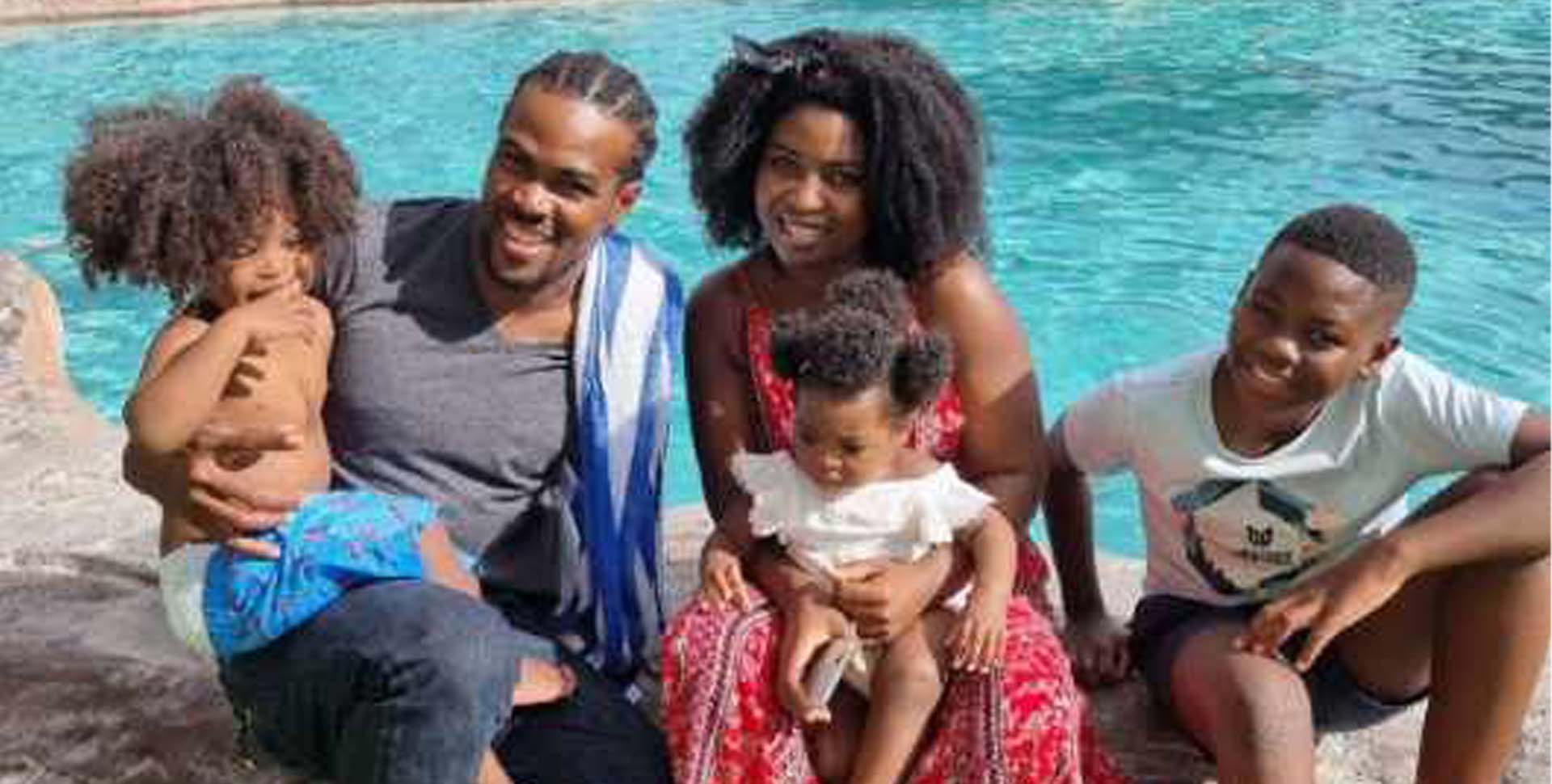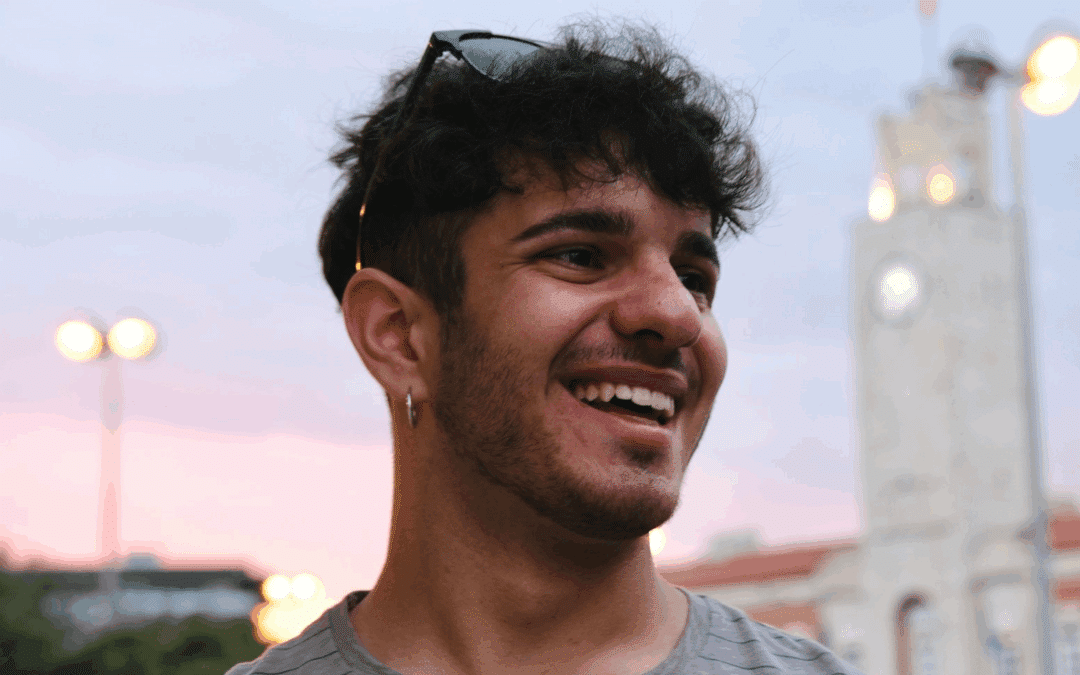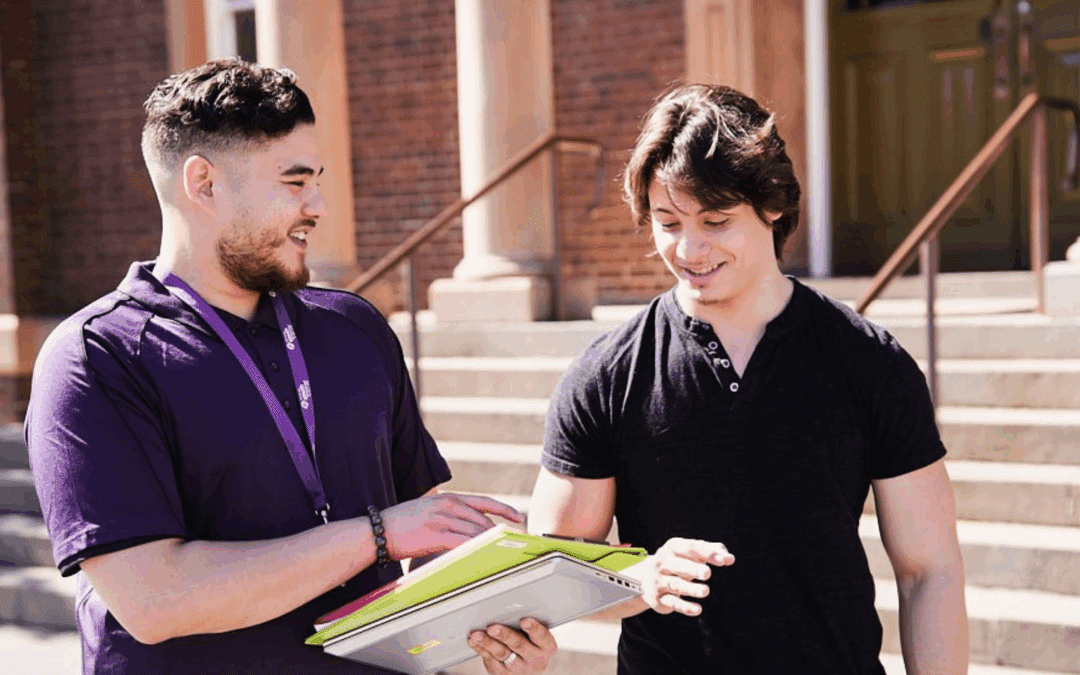Steven spent most of his childhood in Liberia – a country in West Africa, ravaged by decades of civil war.
He remembers what it was like to fight for survival alongside his family.
“My father died during the war,” he explains. “My whole family scattered, and I lost my mother. I had to look after myself and my little brother.”
“I lived on the street for around two years,” he recalls.
“We fled to the neighbouring country of Ghana and eventually – three or four years later – we were reunited with our mum.”
The family lived in a refugee camp in Ghana for seven years until they were given the opportunity to resettle in Australia.
They arrived in Tasmania in 2006, when Steven was 15 years old. But life was still incredibly challenging.
Steven and his brother were abused by their new stepfather, who sometimes left them in the house for days without food.
Eventually, Steven tried to stand up to him and threatened to call the police. His stepfather kicked him out of the house, and he was offered temporary accommodation in a youth shelter.
“It was a difficult time. At one point, I found myself in the hospital in a coma. I needed help dealing with the mental distress I was going through.
“Someone recommended I get help from a mental health professional. That’s when I met Dr Martin Harris, who came to the shelter to provide support.”
During this time, Steven was still going to school – a long bus ride from where he was staying.
“I had been placed in school when I arrived in Australia but hadn’t completed much schooling back home because of the wars, so I was trying my best to catch up.
“I had to repeat Year 8 three times and was eventually moved into Year 10 to complete three years of schooling before entering the workforce.
“I was focussed on finishing school, no matter what.”
“I think Dr Harris could see that I was determined and that the shelter wasn’t a good environment for me.”
They eventually discussed the possibility of Steven returning to West Africa because he wasn’t thriving in Tasmania and had nowhere else to go. The alternative was for Dr Harris – who had already become something of a father figure to him –to adopt Steven into his family.
After the adoption was formalised, Steven was grateful to be out of the shelter and have stable and loving adults in his life, but adjusting to the transition took many years.
“I was dealing with trauma and was in a negative mental space,” Steven explains. “I used to lock myself in my room because at first I didn’t trust him, but he was very patient with me.”
Dr Harris helped Steven develop his English and succeed at school. Steven also received the professional support he needed to deal with his trauma.
After school, Steven decided he wanted to pursue a career as a chef.
He explains that this desire mostly came from experiencing a childhood with very little food.
“Back in Africa, we had no food during the wars. We would often eat grass for dinner.
“I remember the feeling of starvation.”
“When I came to Australia, I knew I never wanted to go hungry again because I knew how horrible that felt. I always wanted to stay around food.”
Steven realised that to achieve this goal, he needed to attend culinary school – which was costly – and the journey required purchasing cooking equipment and other resources.
In 2010, Steven applied for Youth Off The Streets’ National Scholarship Program and successfully received support to complete his training as a chef.
He became an apprentice and won state chef competitions. He advanced to the national stage, and he has since worked for five-star resorts and with Jamie Oliver at Jamie’s Italian restaurant.
In 2012, he accepted a position as a chef in Fremantle, Western Australia. Next, he took the role of a FIFO (fly in, fly out) chef in the mining sector and continued to be promoted over the next few years.
He still lives in Western Australia with his wife and two children, and recently bought his first home. He still works in the mining industry after a career change from chef to driver for Mineral Resources Limited.
When Steven received the scholarship from Youth Off The Streets in 2010, he promised that one day he would give back what he had received.
In 2014, he started a charity called Global Developmental Empowerment (GDE).
The idea was inspired mainly by a trip Steven took to his home country in 2012, where he saw that the civil war had left people in desperate situations.
“There were kids in the street picking up food, and some of them didn’t have clothing,” he reflects.
“They would run up to me begging for money or food.”
“A local woman explained that many of these children’s parents died during the war, and the community was trying to look after them with limited resources.
“It was heartbreaking for me, and I felt like I needed to do something to change it.”
The organisation supports orphaned children in West Africa by providing food, clothing, clean water facilities, education and more.
“Youth Off The Streets also motivated me to start this organisation,” he says.
“Your team is doing fantastic work through its programs to assist young people in difficult situations like I was.
“I want to thank everyone for their hard work and support.”



